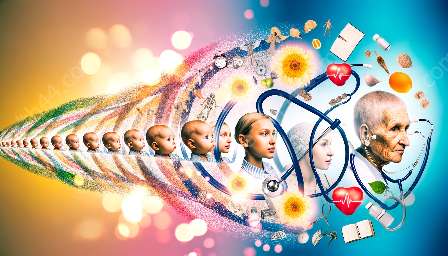Life is a journey that traverses through diverse stages, and late adulthood marks the culmination of this remarkable voyage. In the context of lifespan development, late adulthood is a captivating phase characterized by unique challenges, experiences, and opportunities. This topic cluster aims to unveil the intricacies of late adulthood, delving into its psychological, social, and physical dimensions.
The Essence of Late Adulthood
Late adulthood, often referred to as the golden years, typically spans from the age of 65 and beyond. It is a period characterized by diverse adjustments, including retirement, changes in social relationships, and potential health concerns. Despite these changes, many individuals find late adulthood to be a time of fulfillment, wisdom, and a renewed sense of purpose.
Physical Changes
One of the defining features of late adulthood is the physical changes that accompany aging. From decreased muscle mass to changes in vision and hearing, late adulthood presents a myriad of physical transformations. As health education and medical training professionals, understanding and addressing these changes is paramount in providing effective care for aging individuals.
Psychological Well-being
The psychological well-being of individuals in late adulthood is a crucial aspect to explore. From confronting existential questions to finding meaning in one's life, late adulthood offers a deep introspective journey. Mental health professionals play a critical role in supporting the emotional and psychological needs of individuals in this stage of life.
Social Dynamics
As individuals transition into late adulthood, their social dynamics undergo significant changes. Establishing meaningful connections, fostering intergenerational relationships, and addressing issues of loneliness and isolation are pertinent considerations within this context. By discussing these aspects, we can enhance the awareness and empathy of health educators and medical practitioners towards the unique social needs of aging individuals.
Challenges and Triumphs of Late Adulthood
Embracing the topic of late adulthood involves acknowledging not only the challenges but also the triumphs that accompany this stage of life. From navigating chronic health conditions to discovering newfound passions and hobbies, late adulthood encompasses a diverse array of experiences that warrant exploration and understanding.
Health Education in Late Adulthood
Incorporating health education tailored for late adulthood is indispensable in promoting wellness and quality of life for aging individuals. From promoting physical activity to educating on nutrition and chronic disease management, health educators play a pivotal role in empowering individuals to make informed decisions about their health and well-being.
Medical Training for Late Adulthood
For medical professionals, specialized training in geriatrics and the nuances of providing care for older adults is integral. Understanding the complexities of age-related health issues, geriatric syndromes, and palliative care is essential for delivering compassionate and effective medical services to the elderly population.
Embracing Late Adulthood: A Call to Action
The exploration of late adulthood is a testament to the rich tapestry of human development. By shedding light on this stage of life, we can foster a greater understanding and appreciation for the nuances, challenges, and beauty that late adulthood encapsulates. It beckons us to engage in meaningful discussions, advocate for comprehensive health education, and support advancements in medical training that cater to the unique needs of older adults.


